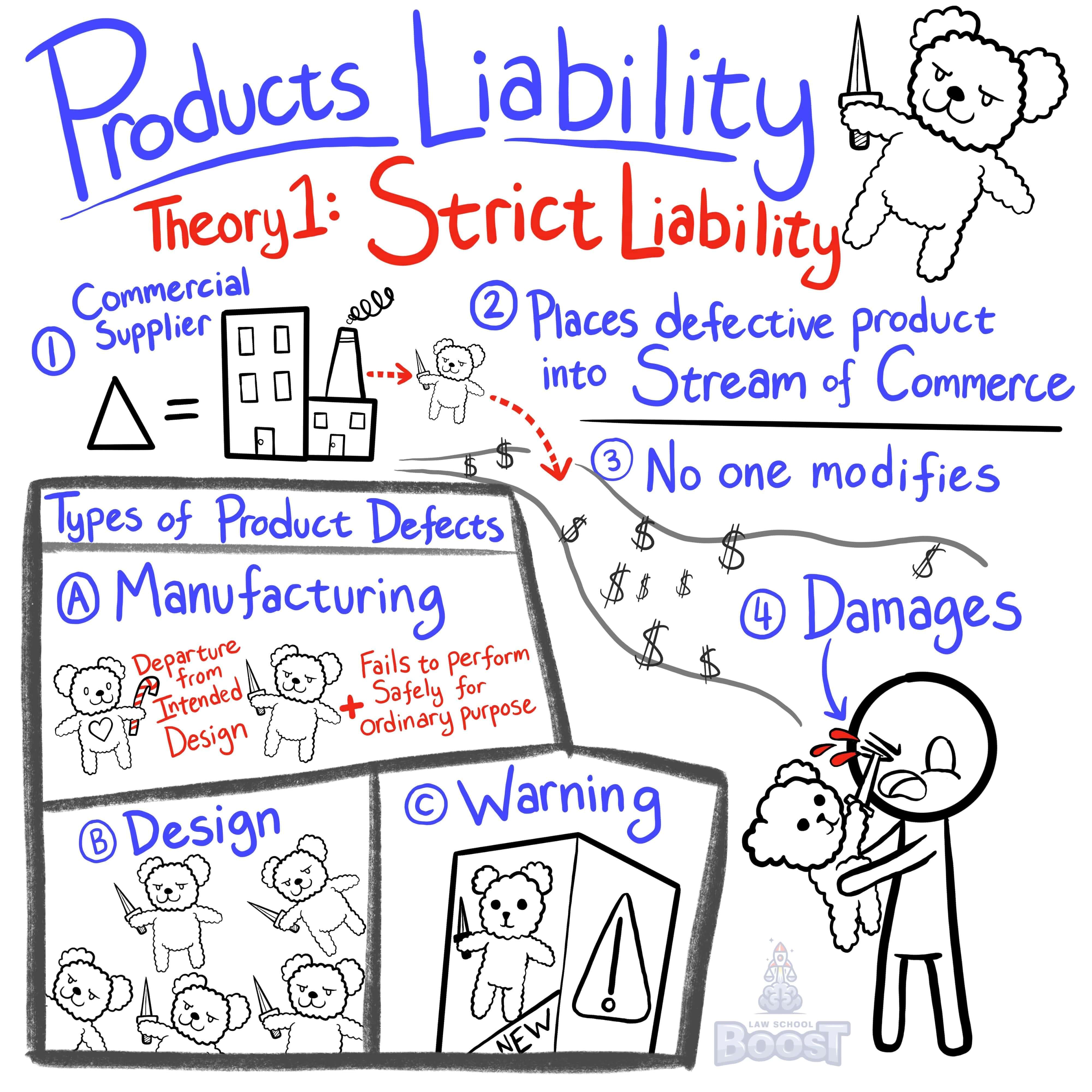👀
Torts • Products Liability
TORT#075
Legal Definition
A warning defect exists where a manufacturer knows or has reason to know that the product is likely to be dangerous for its intended use and—despite having no reason to believe users will realize the danger—fails to inform the product's users of its dangerous condition or facts that make it dangerous.
A product failing to comply with government safety standards establishes that it was defective; however, compliance is only inconclusive evidence that the product is not defective.
When it comes to prescription drugs and medical devices, warnings given to experienced intermediaries are sufficient.
A product failing to comply with government safety standards establishes that it was defective; however, compliance is only inconclusive evidence that the product is not defective.
When it comes to prescription drugs and medical devices, warnings given to experienced intermediaries are sufficient.
Plain English Explanation
A "warning defect" is basically a failure to warn. People have a right to know about potential dangers of using products they purchase, and manufactures have an obligation to provide such a warning. This is why many prescription drugs include a warning on the bottle not to operate heavy machinery while using the drug.
Hypothetical
Hypo 1: Sam buys a telescope from the store, unpacks it, and assembles it based on the instructions in the packaging. Unfortunately, the instructions are not clear about how to install the sun filter, which Sam installs incorrectly. As a result, Sam experiences severe damage to his eye. Result: The manufacturer had a duty to provide clear instructions and warnings that, if followed, would avoid such eye damage. The lack of clear instructions and warnings is a defect, and that defect resulted in Sam's eye injury.
Visual Aids

Related Concepts
In establishing a valid strict products liability claim, what is a design defect?
In establishing a valid strict products liability claim, what is a manufacturing defect?
What are the 5 theories of products liability?
What are valid defenses to product liability claims based on breach of warranty?
What are valid defenses to strict products liability?
What is required to bring a valid products liability claim under breach of express warranty?
What is required to bring a valid products liability claim under breach of implied warranty of fitness for a particular purpose (IWFPP)?
What is required to bring a valid products liability claim under breach of implied warranty of merchantability (IWM)?
What is required to bring a valid products liability claim under intent?
What is required to bring a valid products liability claim under misrepresentation of fact?
What is required to bring a valid products liability claim under negligence?
What is required to bring a valid products liability claim under strict liability in tort?


